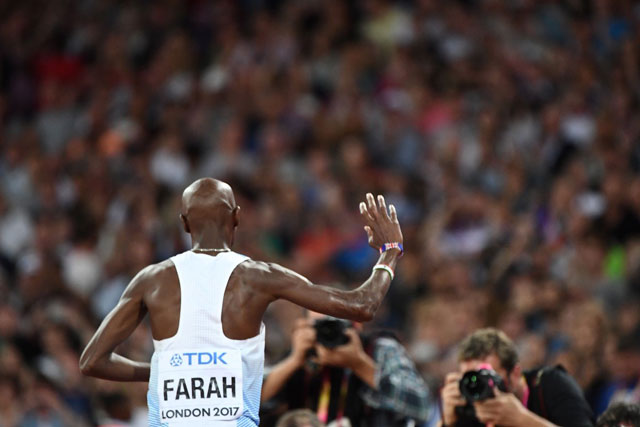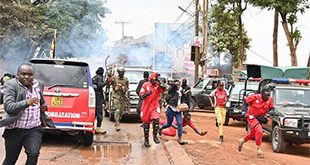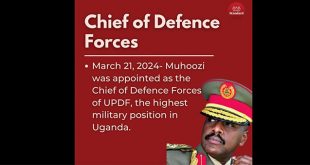
London, United Kingdom | AFP | Briton Mo Farah departs an undisputed legend of the track in terms of titles won, but to many his association with coach Alberto Salazar will forever cast a unwanted pall on his career.
The 34-year-old Somalia-born champion stuck with Salazar despite serious allegations against him which he strenuously denied and have never been proven, but refuse to go away.
However, the contrast to the universal adoration showered on fellow legend Usain Bolt who also bid farewell to championship racing is stark.
Farah certanly got cheered to the rafters when he won his two Olympic and world gold and silver medals in London and has been ennobled by Queen Elizabeth II in recognition of his achievements.
But despite the plethora of golds and breaking up the hegemony of the Kenyans and Ethiopians in the events, a real barometer of his popular standing in the United Kingdom is reflected by the BBC Sports Personality of the Year award which is voted on by the public.
On only one occasion, in 2011, has he reached the top three, something British triathlon great Alistair Brownlee put down to him not being considered British.
“It’s really sad, because for me he is the perfect British story,” Brownlee told The Guardian last December.
“It’s what we should be about: a person who comes to Britain as a young man, as a refugee, and an ex‑schoolteacher (Alan Watkinson) identifies something that he’s brilliant at and he represents Britain as the best in the world.”
Farah shrugs off the constant snubs saying he always gets a great reception from the crowds at the British meetings.
He rightly points out his voyage from war-torn Somalia to arriving in England, via a spell with his grandparents in Djibouti, with his mother Amran and two of his five siblings (brothers Ahmed and Wahib but not his twin Hassan who was too ill to travel and they would not see each other for 12 years) as an eight-year-old boy and his subsequent success is what will remain with him.
“Just knowing where I grew up, where I come from, the journey I have taken,” he told The Sun last year.
– ‘A new world’ –
Farah, whose mother brought him and his siblings to join their father Muktar who is an IT consultant but divorced soon afterwards leaving for Brighton with Farah’s two brothers, for his part found England a beguiling place.
“I remember walking in, and the doors opened, and there were escalators,” he told The Big Issue magazine.
“It was fascinating for me as a child. A new world -– like when I went to Disneyland. And for me, it was where my family was, so it was home.”
His mum though was the parent that Farah — who had to live with his aunt Kinsi when they settled in England — felt closest to, a similarity he shares with Bolt who also described himself as a ‘mummy’s boy’.
“I was always a happy kid, up for laughs, joking around,” said Farah, who makes a show of running to his wife Tania and their four children — including twin girls Aisha and Amani — at the end of finals.
“And I always had that cheeky smile.
Thank you @Mo_Farah
2011 ??
2013 ??
2015 ??
2017 ??#IAAFworlds pic.twitter.com/7h11rikAr3— IAAF (@iaaforg) August 12, 2017
“If I was causing trouble I could get away with it because of that. I used it on my mum quite a lot. I was a lot closer to my mum than my dad. I’m a mummy’s boy really.”
If there is a dream to realise as he winds down his career it is to spend more time with Hassan and he described movingly in his biography what it meant when he finally was reunited with him in 2003.
“It felt like a part of me had been missing the whole time I had been growing up separately from Hassan.
“At last, the void in my life was gone.”
The void he leaves in track distance running is immeasurable.
With me I warmly join hands with #Legend @ElguerroujHicha to congratulate you @Mo-Farah for a successful track career,.. You are a #Legend
— Joshua Cheptegei (@joshuacheptege1) August 12, 2017
 The Independent Uganda: You get the Truth we Pay the Price
The Independent Uganda: You get the Truth we Pay the Price


